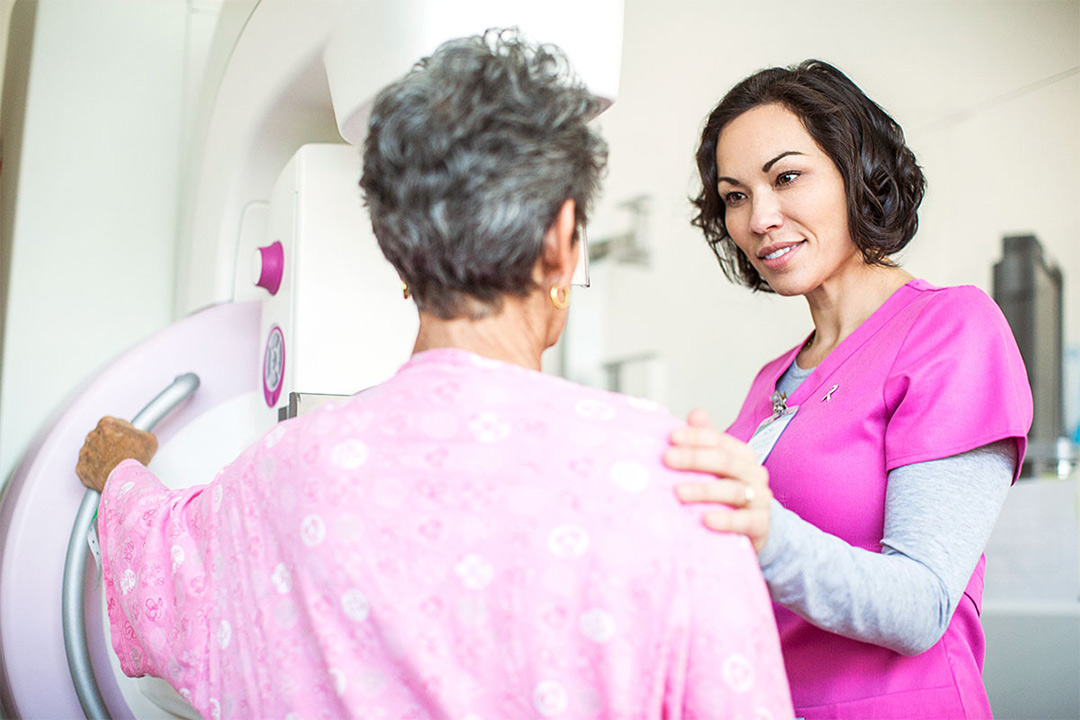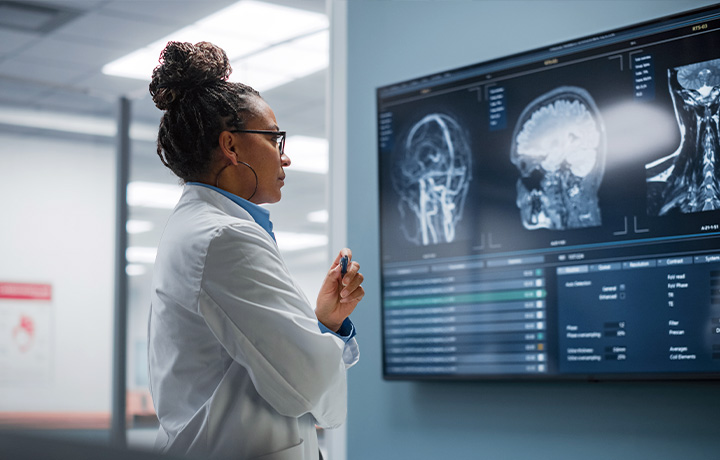Why are imaging tests needed?
Imaging tests help detect a wide range of injuries and illnesses from simple bone fractures to cancer. These scans give your doctor the information needed to guide your care.
If you need an imaging test, your doctor can quickly connect you to the right type of care. Your doctor can also help you:
- Find the right specialist
- Locate an imaging center
- Schedule an imaging test
Radiology FAQ
Radiology is a medical specialty that uses imaging tools like X-rays, ultrasounds, CT scans and MRIs to look inside the body. Radiologists care for patients of all ages and help diagnose injuries and illnesses through imaging tests.
Comprehensive imaging services may include*:
- Body and prostate imaging: visualizes the abdomen, reproductive organs, gastrointestinal tract and prostate
- Cardiac CT calcium scoring: a special CT scan that checks for plaque buildup in coronary arteries
- Coronary CT angiogram: uses dye and CT imaging to examine blood flow in heart arteries
- CT or CAT scan (computed tomography): a 3D X-ray that shows cross-sections of bones and organs
- DEXA scan (dual-energy X-ray absorptiometry): measures bone strength and helps detect osteoporosis
- Fluoroscopy: a live video X-ray that shows movement inside the body, like swallowing or heart function
- Mammogram (breast X-ray): screens for breast cancer. Some locations offer 3D mammography for clearer images
- MRI (magnetic resonance imaging): creates detailed images of soft tissues like the brain, spine and joints. We offer open and closed MRI options
- MRI (advanced options): sedated MRI is available for patients with anxiety, claustrophobia or difficulty staying still
- Musculoskeletal (MSK) ultrasound: uses sound waves to image muscles, tendons, ligaments, nerves and joints
- Nuclear medicine: uses a small amount of radioactive material (tracer) to show how organs are working
- Neuroradiology: focuses on diagnosing conditions of the brain, spine, and head/neck
- PET scan (positron emission tomography): uses a radiotracer and special camera to detect early signs of disease
- Ultrasound: uses sound waves to create images of soft tissues, often used for pregnancy or abdominal exams
- Vascular ultrasound: uses sound waves to check circulation and detect blockages or clots
- Vascular interventional radiology: uses imaging to guide minor procedures on blood vessels, such as placing stents
- X-ray: a quick and common imaging test that shows bones and dense tissues in black and white
Most tests are quick, painless and noninvasive. You may need to lie still or change into a gown. A technologist will guide you, and some tests may use contrast dye or a small amount of radioactive material. Your care team will explain everything beforehand.
We offer a comprehensive range of breast imaging services*, including:
- 3D mammograms: for clearer, layered breast images
- Breast MRI: provides detailed images, especially useful for high-risk patients
- Breast sonograms: ultrasound imaging of breast tissue
- Low-dose digital mammography: reduces radiation while maintaining image quality
- Ultrasound-guided and stereotactic-guided breast biopsies: minimally invasive procedures to collect tissue samples
- Vacuum-assisted biopsy: allows for larger tissue samples with minimal discomfort
- Wire-free radar breast localization system: helps precisely locate abnormal tissue without traditional wires
A PET scan uses a small amount of radioactive material and a special camera to look at how your organs and tissues are working. It can help detect cancer, heart problems and brain disorders.
The PET CT scan process usually takes 1–2 hours, including prep time.
MRI scans are painless and noninvasive, meaning no incisions (cuts) or surgery are needed. You don't feel the magnetic field or radio waves, and there are no moving parts around you.
MRIs usually take 30 to 60 minutes, depending on what part of the body is being checked and if contrast dye is used.
Yes, radiologists are medical doctors who specialize in interpreting imaging tests. They work closely with your care team to diagnose conditions and guide treatment.
Radiology technologists help perform the scans and ensure your safety and comfort during the process.
Helpful resources

Article
What to expect after a scan
Getting results for important medical tests can sometimes feel like a waiting game. Try these strategies to get your information faster.

Article
What are breast cancer screening tests?
Breast cancer screening is the best way to catch signs of cancer early, and can include self-examinations, mammograms, ultrasounds and MRIs.

Article
Screening tests for adults and how to get them
Staying on top of your screenings doesn’t have to mean endless doctor visits. Learn which are important to focus on what matters.
Optum arranges for or provides medical and other clinical services in accordance with laws in each state it operates. Physicians or providers referenced on this website are to those who are either part of independent practices or to those medical practices managed by or owned, where permitted, by Optum. In all circumstances, physicians and other licensed professionals have complete authority for all medical decision-making and patient care. Optum does not determine or set the methods, standards, or conduct of the practice of medicine or health care provided by any of the practices or their physicians or other licensed professionals.
*Radiology services vary by location. Check with your doctor’s office or health plan for specific information.




